While big RPG blockbusters have dominated the headlines this summer, including Final Fantasy XVI’s action-based flair, Larian’s breakout Baldur’s Gate 3, and Bethesda’s Starfield looming on the horizon, there’s something to about smaller scale games that can sort of cleanse the palate between these massive outings and offer something a bit less intense.
Dragon Quest Treasures is a game that fills that niche quite nicely. While the series is undoubtedly known for delivering its own massive RPGs that can handily rack up hours into the triple digits, Treasures is a light touch in comparison, aptly positioned for a short burst of gaming on handhelds versus a marathon session on the couch. A natural fit for the Nintendo Switch, on which it was released last December, I’m pleased to report that the “verified” Steam Deck version runs very well, with settings maxed out save for FPS at a steady 60. (You can set them up to 144fps or uncap them as well.)
For a brief recap: Erik and Mia are siblings hailing from 2017’s Dragon Quest XI, and in their fledgling years are being raised by vikings who sail the seas in search of treasure. When they befriend two magical creatures, they are whisked away to the land of Draconia, where rival treasure hunting gangs vye for its hidden riches. Determined to make a name for themselves, the pair start their own gang, and can recruit myriad monsters from the Dragon Quest series into their crew.
On their journey, they are tasked with finding the seven dragon stones located somewhere in Draconia, so that their magical friends can return to the world from which they hail. In doing so, they come up against the other gangs in what’s a very simple and light-hearted story that doesn’t linger on its simple premise.
The game’s opening hour or two holds your hand for all the important explanatory bits, but after that, you’re left to set off to whichever area of Draconia you desire. Of course, there are quests to fulfill and bonuses for hunting in certain areas at certain times, and it’ll be up to you to determine the best plan of attack.
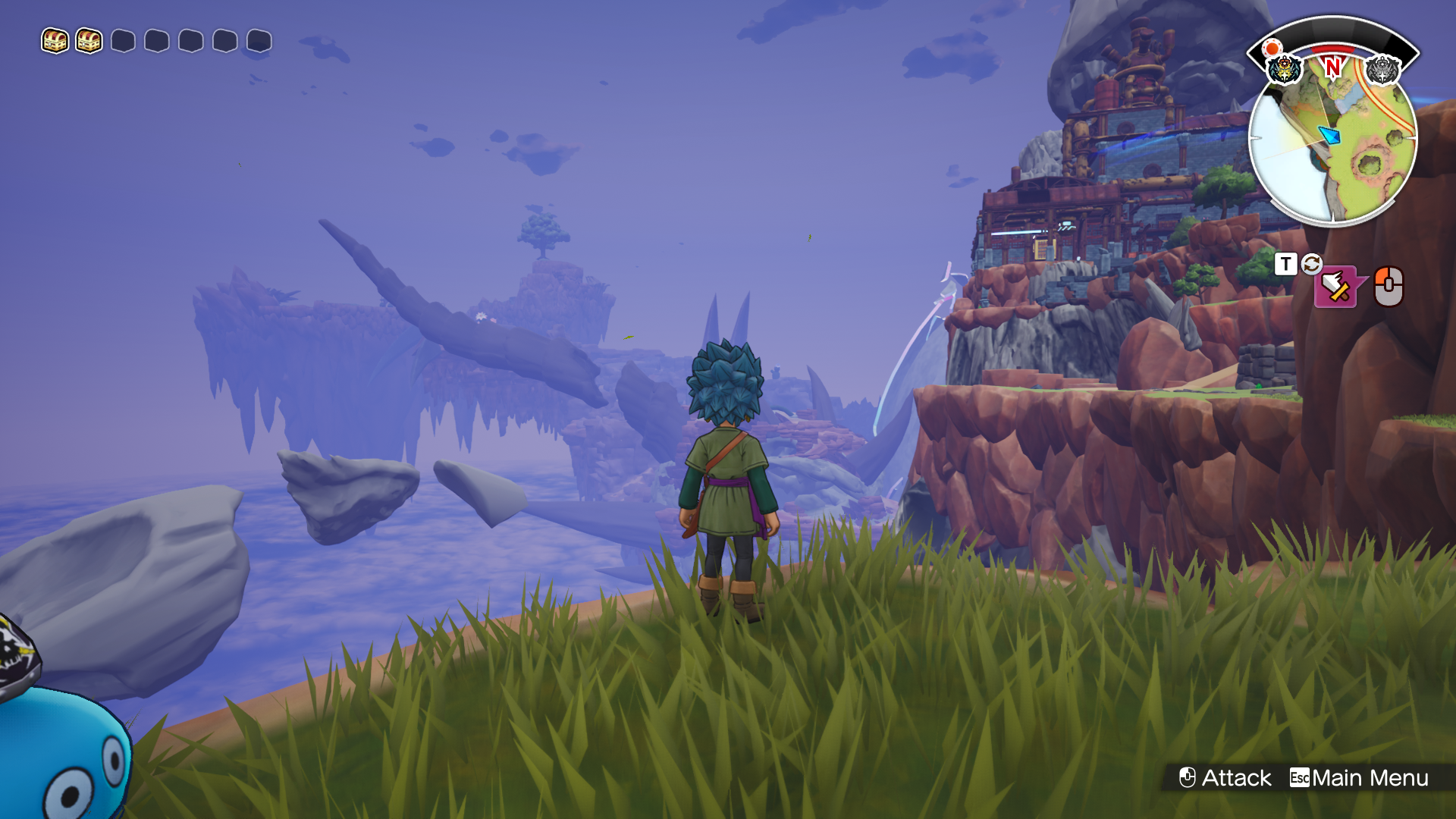
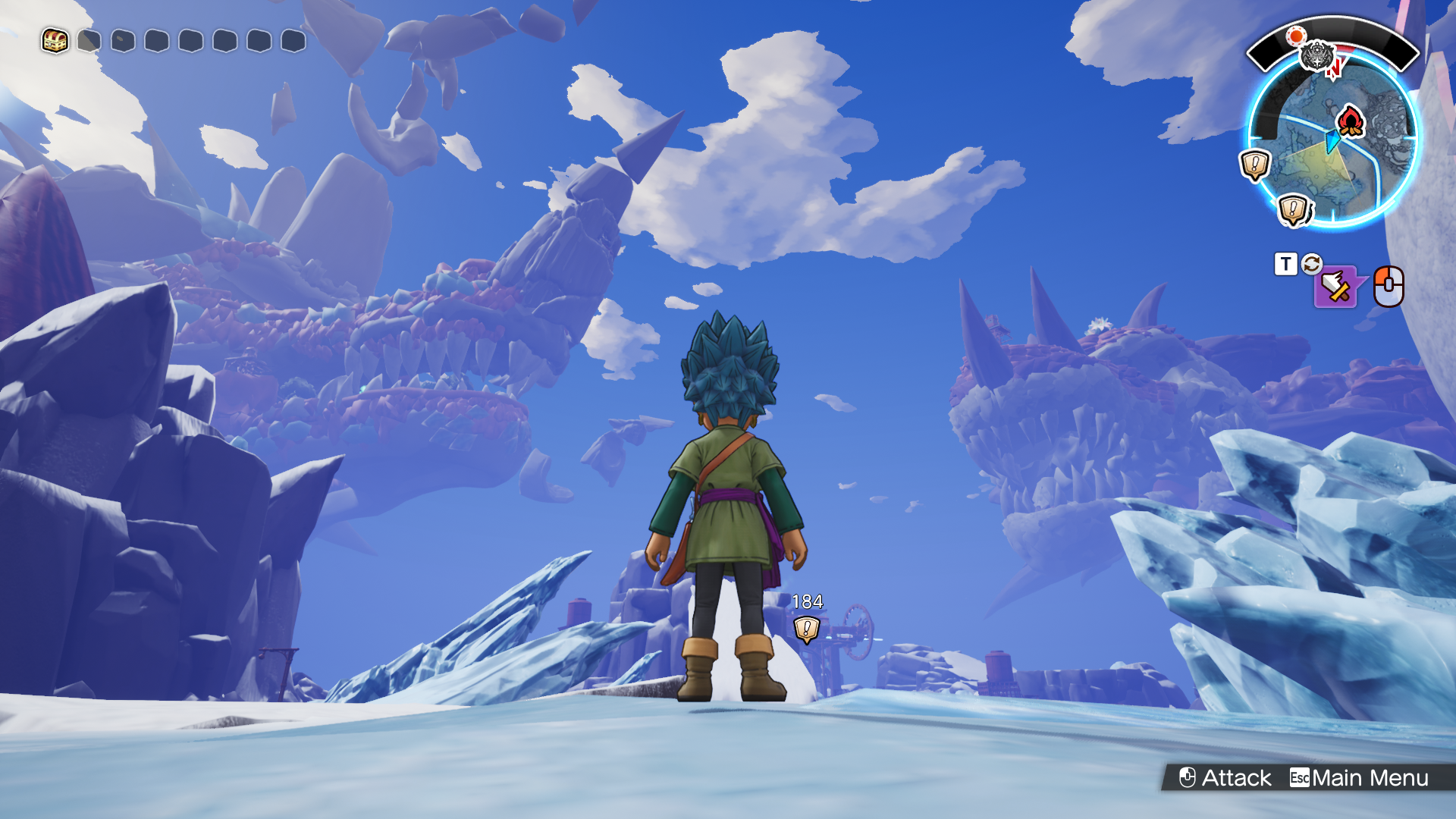
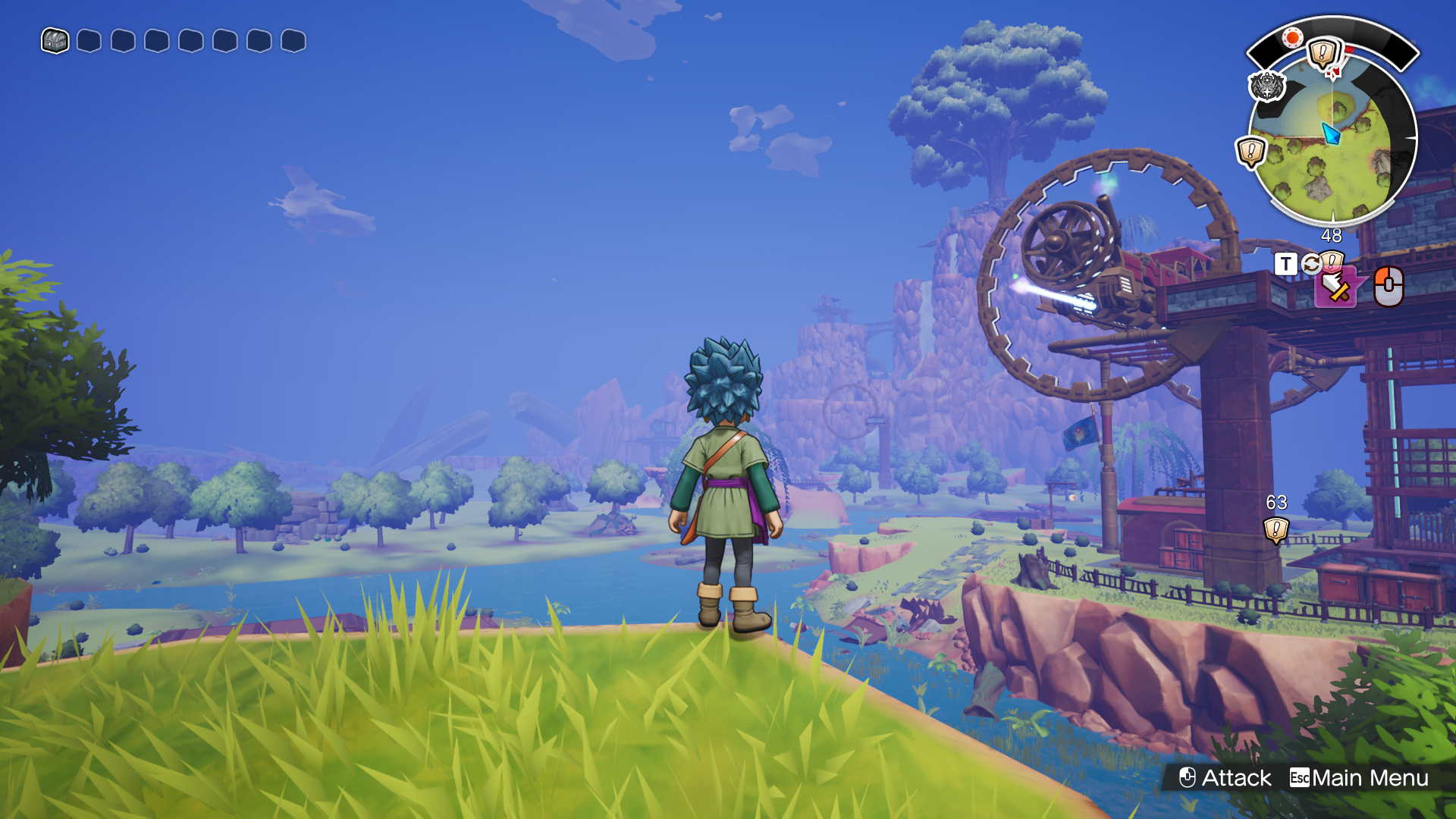
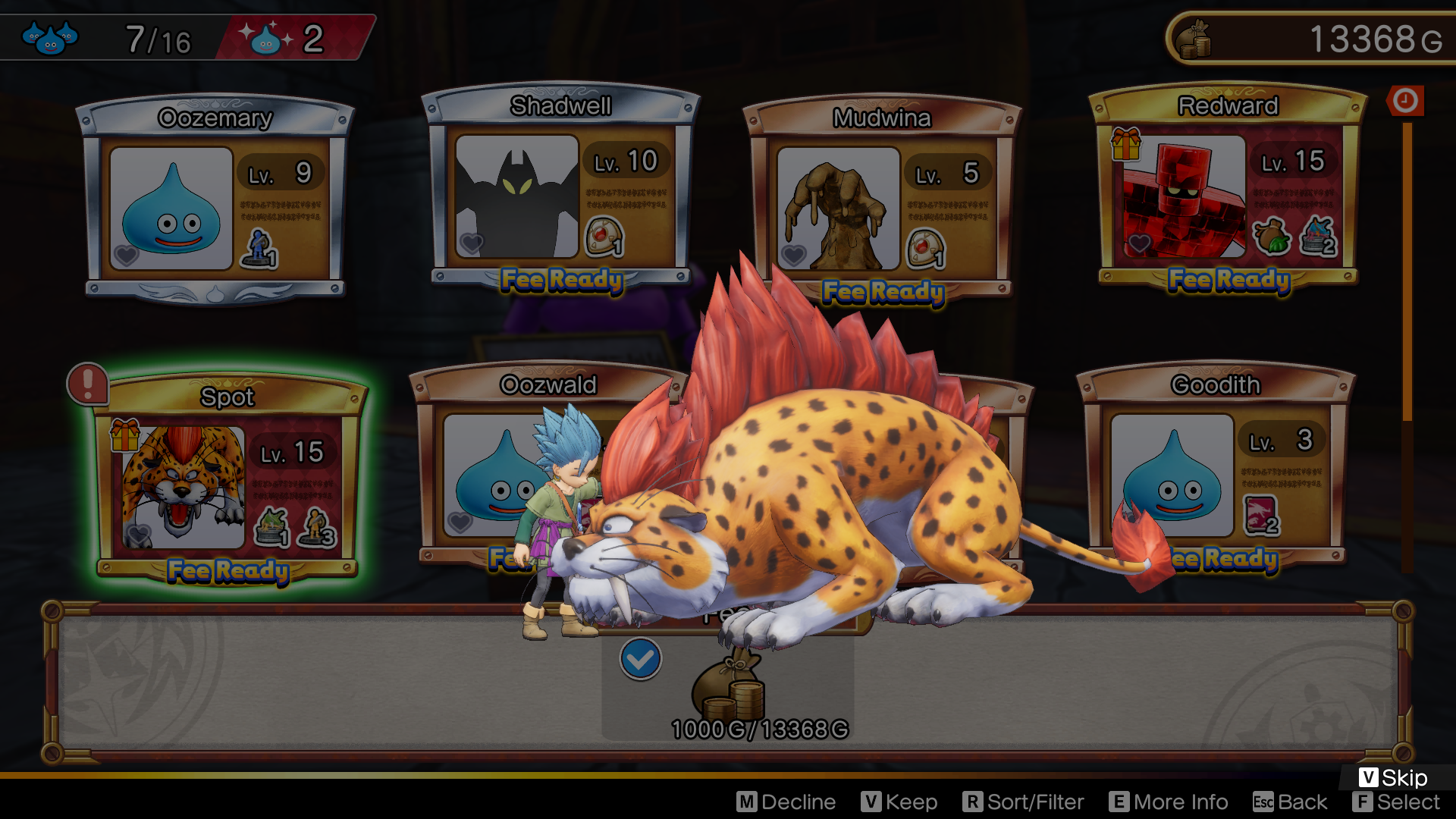
Finding treasure is really at the heart of the game, and most other gameplay mechanics are second to that. The key verbs of this game are wandering throughout its massive zones, amassing items and treasure, then hauling it back to your base to appraise and collect. Yes, there’s combat and your party of monsters to manage, but combat itself isn’t the primary focus although you may be engaging in battles frequently. For the dedicated, there’s a lot of space to fiddle with things as you see fit. However, with different rarities of companions to optimize and a ‘medals’ system that acts like equipment to even further customize characters, that’s really about it.
Battles themselves are generally quite speedy, with the player character opting to hit enemies with basic combos or shoot magic pellets with a slingshot. Most of the time I’d often initiate battles this way, only for my customized party of monsters to quickly dispatch enemies while I darted about picking up items or scouted the next area to explore. There’s a slate of super moves you can activate quite regularly, which also seem to make quick work of most menial encounters.
Exploring Draconia’s massive regions is also quite enjoyable, as your monster friends all have unique abilities to help you navigate areas you wouldn’t be able to otherwise. Some will let you ride them quickly across vast distances, others will give you a leg up or a soft glide down from a precarious height. Each zone is also visually distinct and has that alluring color palette that other games in the series share, as well as a day/night and weather system.
Weighing whether to explore one more area versus making a safe return trip with your treasure is a satisfying feeling. Better yet, enemies that are much higher level than you can also find their way across your path at night or in other conditions, so it pays to keep an eye on your surroundings including the quickest route to safety.
As I mentioned before, the game runs quite well on Steam Deck but also on dated PCs as well. 60 fps at maximum graphics settings was no problem for a GTX 960 (video captured below), a card that was decent maybe 7-8 years ago, so anything new should be able to handle it well. Of course, that all sounds about right when you consider this game was optimized to run decently on the Switch. Environments aren’t densely detailed, but have a pleasurable draw distance to invite a sense of wanderlust without any hit to performance. Dragon Quest’s monsters are also known for having charming and cute animations, so any system that can make the best out of a solid and decent frame rate is a boon.
If there’s any downsides, it’s that the soundtrack remains a steady rehash of familiar tunes rather than offering anything original, and it feels like a distinct missed opportunity to have some type of drop-in drop-out multiplayer co-op mode. The voice acting performances are solid, yet the amount of repeating interjections and giggles grates after a protracted stay.
If you’re looking for something bite-sized between your big RPG outings, Dragon Quest Treasures is an easy recommendation, and may be a decent gateway game for younger gamers into the Dragon Quest pantheon similar to Dragon Quest Builders. While Treasures is a vastly different approach then Builders, it offers its own elegance with its simple concept and execution. Of course, if the lighter monster raising aspect here is a bit of a letdown for you, Dragon Quest Monsters The Dark Prince might end up being more of your cup of tea when it releases in December.
Version Tested: PC, Steam Deck
Disclaimer: Review code for Dragon Quest Treasures was provided by the publisher Square Enix.
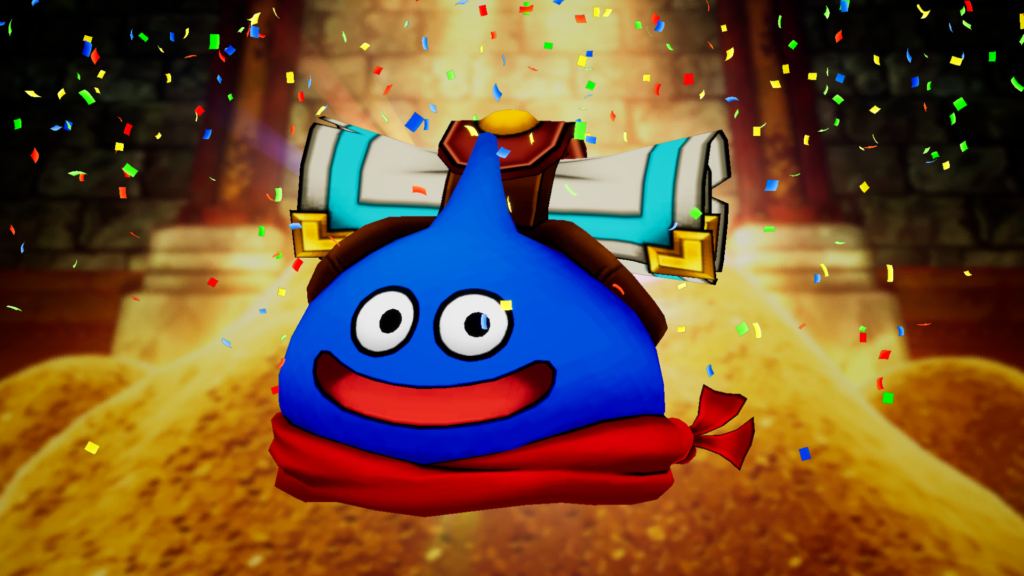
Recent Comments